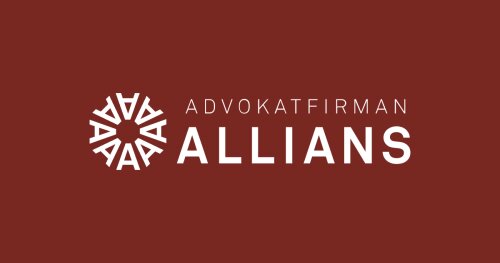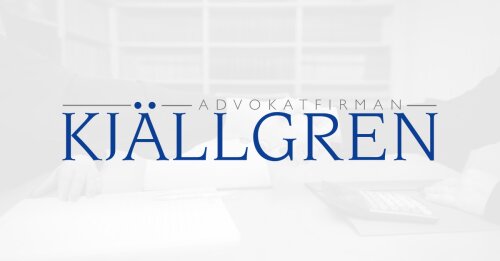Best Tax Increment Financing Lawyers in Sweden
Share your needs with us, get contacted by law firms.
Free. Takes 2 min.
Or refine your search by selecting a city:
List of the best lawyers in Sweden
About Tax Increment Financing Law in Sweden
Tax Increment Financing (TIF) is a financial mechanism used to stimulate economic development and urban renewal by utilizing expected future increases in property tax revenues. In Sweden, TIF is a relatively niche financial tool, primarily employed at the municipal level to support infrastructure and development projects that would usually lack sufficient funding. By capturing the future tax increments generated by an increase in property values within a designated area (often through new development), Swedish municipalities can invest in the area's infrastructure without imposing new taxes.
Why You May Need a Lawyer
There are several circumstances where individuals or businesses might seek legal advice regarding TIF in Sweden. These include understanding the legal implications of entering into a TIF agreement, negotiating terms with municipalities or other stakeholders, resolving disputes related to project execution or expected tax revenues, and compliance with local regulations governing TIF arrangements. A lawyer specializing in this field can provide valuable guidance to navigate the complexities of TIF law and ensure that all agreements align with municipal and national legal requirements.
Local Laws Overview
In Sweden, TIF is governed at both the municipal and national levels, where local governments design specific financial arrangements under the broader framework provided by Swedish financial law. Key aspects of local TIF laws often include setting up a TIF district, estimating the increment in taxable property value, and structuring the financing of specific projects. Municipalities must collaborate closely with private stakeholders, ensuring transparency and public accountability throughout the process. Legal frameworks often demand comprehensive feasibility studies and clear benefit reports to justify the use of TIF for particular projects.
Frequently Asked Questions
What is the main purpose of TIF in Sweden?
The primary aim of TIF in Sweden is to support urban development projects without imposing new taxes, utilizing projected tax revenues from anticipated increases in property values to fund necessary infrastructure improvements.
Who can initiate a TIF project?
Typically, TIF projects are initiated by municipalities in Sweden, which then partner with land developers and other stakeholders to design and execute the project.
What kinds of projects are generally funded through TIF?
TIF can fund a wide range of projects, from infrastructure improvements like roads and utilities to urban redevelopment initiatives that aim to revitalize distressed areas.
How are taxpayers affected by TIF projects?
While TIF projects generally aim to boost local economies, taxpayers should be aware that they involve risk, as they depend on forecasted increases in property values, which may not always materialize as expected.
Are there any risks involved with TIF projects?
Yes, there are risks, including the potential for lower-than-expected property value increases, leading to insufficient funds to cover project costs, which could affect municipal finances.
Can TIF be used to fund non-infrastructure projects?
In Sweden, TIF is mainly used for physical infrastructure projects; however, it can occasionally support projects that promise significant community benefits or economic stimuli.
Does TIF financing affect local zoning laws?
TIF projects might influence local zoning laws, as new developments may require changes in land use plans or zoning regulations to proceed.
How long do TIF projects typically last?
The duration of TIF projects varies, but they often span several years, depending on the complexity and scope of the project.
What role do public hearings play in TIF projects?
Public hearings offer community members a platform to express support or concern, ensuring greater transparency and public participation in TIF projects before they approved.
Can individuals or organizations oppose a TIF project?
Yes, individuals or groups can voice opposition to TIF projects, particularly during the public consultation stages, and may also seek legal means to challenge or modify proposed plans.
Additional Resources
For more information on Tax Increment Financing in Sweden, consider contacting the Swedish Tax Agency, local municipal authorities, or economic development agencies. Organizations like Svenskt Näringsliv, the Confederation of Swedish Enterprise, can also provide insights and support regarding TIF-related queries and best practices.
Next Steps
If you require legal assistance with Tax Increment Financing in Sweden, start by consulting with a lawyer who specializes in municipal or economic development law. Prepare a detailed overview of your project or issue and arrange a consultation to explore your options. Additionally, staying informed by reviewing local municipal plans and attending relevant public meetings can be helpful. Remember to scrutinize any proposed TIF agreements carefully, ensuring they support your interests and comply with applicable laws and regulations.
Lawzana helps you find the best lawyers and law firms in Sweden through a curated and pre-screened list of qualified legal professionals. Our platform offers rankings and detailed profiles of attorneys and law firms, allowing you to compare based on practice areas, including Tax Increment Financing, experience, and client feedback.
Each profile includes a description of the firm's areas of practice, client reviews, team members and partners, year of establishment, spoken languages, office locations, contact information, social media presence, and any published articles or resources. Most firms on our platform speak English and are experienced in both local and international legal matters.
Get a quote from top-rated law firms in Sweden — quickly, securely, and without unnecessary hassle.
Disclaimer:
The information provided on this page is for general informational purposes only and does not constitute legal advice. While we strive to ensure the accuracy and relevance of the content, legal information may change over time, and interpretations of the law can vary. You should always consult with a qualified legal professional for advice specific to your situation.
We disclaim all liability for actions taken or not taken based on the content of this page. If you believe any information is incorrect or outdated, please contact us, and we will review and update it where appropriate.
Browse tax increment financing law firms by city in Sweden
Refine your search by selecting a city.
















